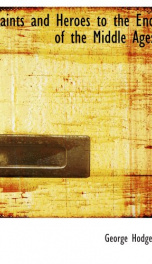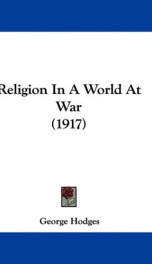the early church form ignatius to augustine

Purchase of this book includes free trial access to www.million-books.com where you can read more than a million books for free. This is an OCR edition with typos. Excerpt from book: CHAPTER II THE STRUGGLE FOR LIFE AT home, among their kinsfolk and acquaintance, the Christians were met with immediate hostility. They were put out of the synagogues, and worse punishments were visited upon them. In the Roman world, they were at first treated with contempt and aversion, and then persecuted. The persecution increased from attacks on individuals and groups to concerted municipal and even imperial action against the Christian society. Twice the government made an organized attempt to destroy the obnoxious religion.- That Christianity should have been thus rer ceived in the Roman world is remarkable, because one of the most notable characteristics of the church was its benevolence, and one of the most marked characteristics of the empire was its tolerance. The church was a benevolent institution. There is indeed a benevolence which seeks mainly to improve the intellectual, moral and spiritual condition of the neighborhood. It endeavors to impose its own interests and enthusiasms upon those who are interested in other aspects of life. It has new standards, and calls for conformity to them. It says, You must be like us. And this is instinctively resented by the neighbors, who hate to be reformed. But the benevolence of the church appeared in the effort to mitigate conditions which all men desire to have changed. The Christians ministered to the sick and to the poor. The church remembered the social precepts and example of Jesus Christ. His constant emphasis on the supreme value of brotherly love extended not only to the least of human creatures but even to the most hostile set the note of the ideal life. Thus the first recorded act of the Christian ministry was the healing of the sick, when Peter and John made a lame man to walk, at the Beautif...
Info about the book
Author:
Series:
Unknown
ASIN:
B008NGLQKG
Rating:
3.5/5 (2)Your rating:
0/5
Languge:
English
Users who have this book
Users who want this book
What readers are saying
What do you think? Write your own comment on this book!
write a commentif you like the early church form ignatius to augustine try:
Do you want to read a book that interests you? It’s EASY!
Create an account and send a request for reading to other users on the Webpage of the book!













